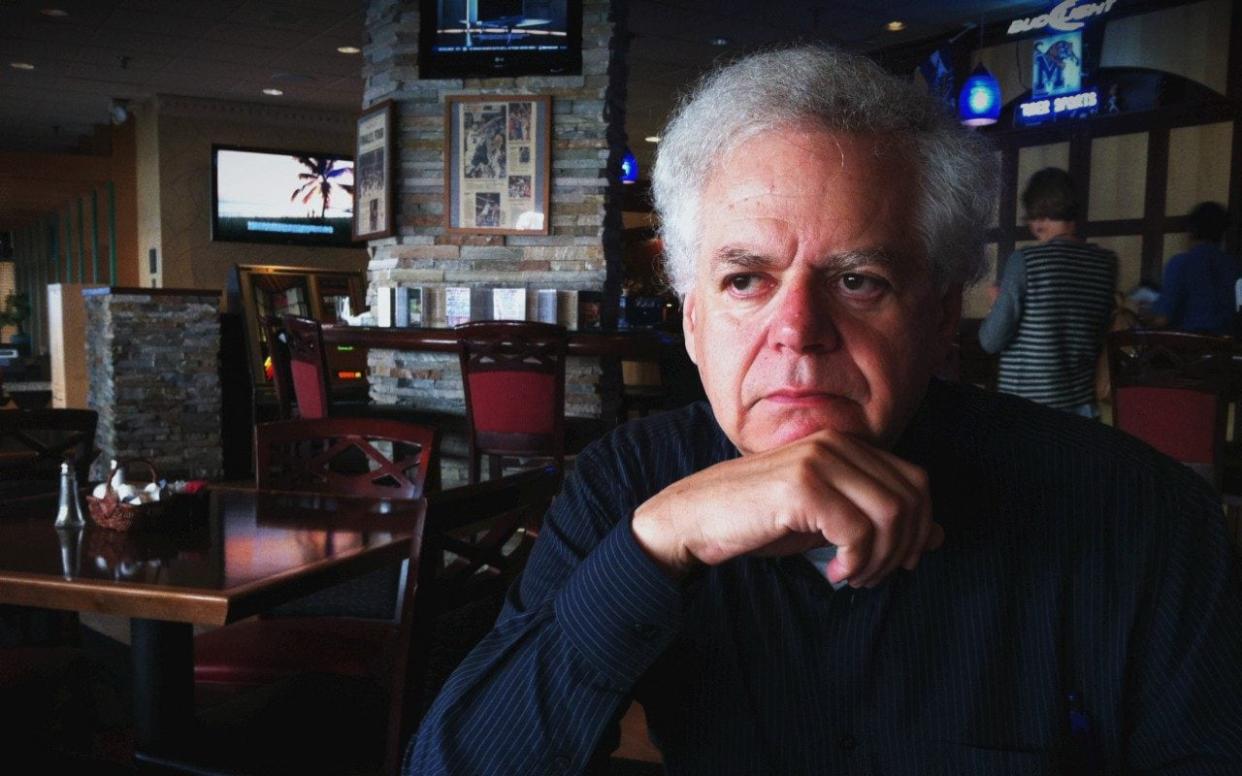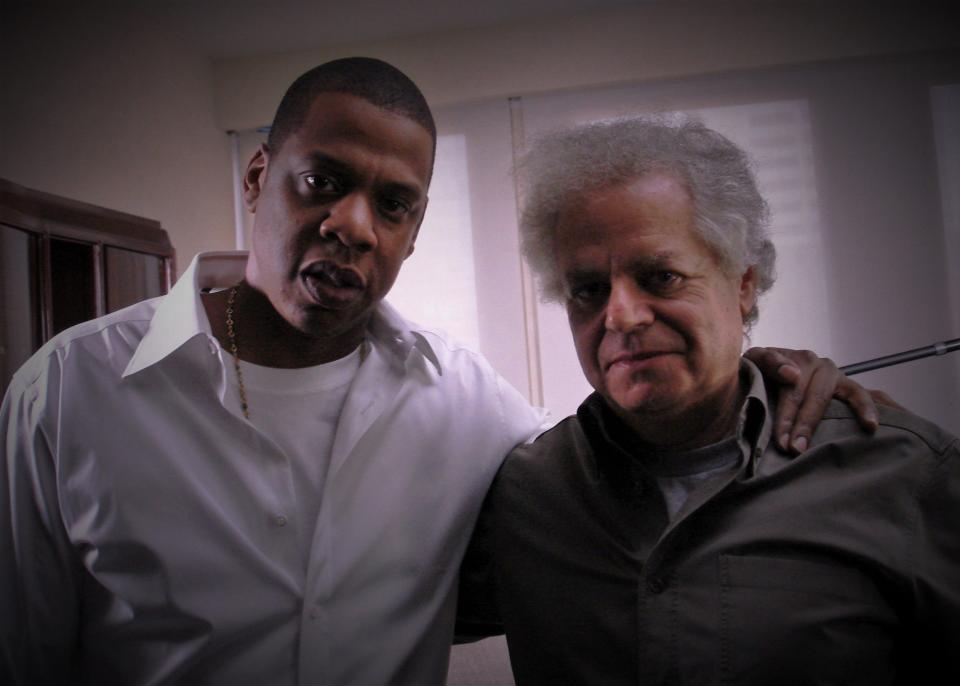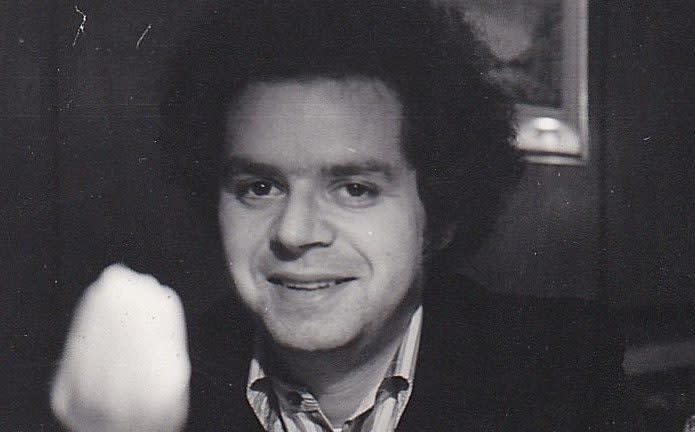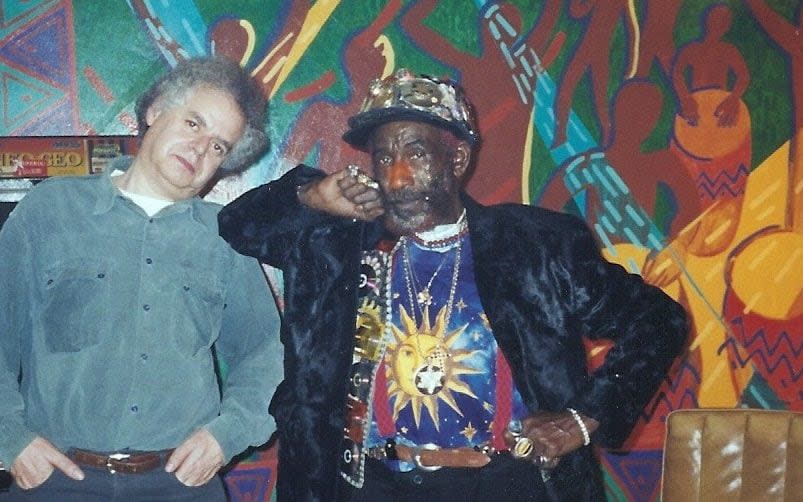Jeremy Marre, prolific and versatile film-maker who promoted ‘world music’ – obituary

Jeremy Marre, who has died aged 76, reckoned at the end of his life that he had made 101 films, the vast majority for television and concerned with the exploration of music in its many and various forms.
If Marre did not invent the phrase “world music”, he certainly forwarded the concept through the extraordinary range of his work. This was first demonstrated in Beats of the Heart (1977-83), the 14-part series which made his reputation.
The first of these programmes, “Roots, Rock, Reggae”, was especially successful in recording the music and ambience of Jamaica. The interviews with, and the songs played by, such leading figures as Bob Marley and the Wailers, Jimmy Cliff, and Toots and the Maytals, have since acquired historic status.
Subsequent episodes of Beats of the Heart dealt with music of the resistance movement in South Africa; Afropop in Nigeria; Latin-American Salsa; the religious songs of the Appalachian Mountains; gypsy themes in Africa and Europe; the revival of music in China; samba in Brazil; and, in Texas, the marriage of Mexican soul with rock’n’roll.
Later programmes in the series featured the sound tracks of Bollywood; music from the marijuana regions of Colombia; kick boxing accompaniments from Thailand; and assorted sounds from Japan.
“Somehow,” observed The New York Times in 1986, “Jeremy Marre manages to document musical events that most outsiders wouldn’t even hear about, much less attend.”
Yet every subject which Marre tackled was illuminated by his meticulous research. He had the knack of discovering – often in the shortest available time – documents, film and testimonies which had somehow eluded previous investigators.

Sometimes the musicians whom Marre interviewed were challenging, to say the least. They included, in 2003, James Brown, the woman-punching progenitor of funk; in 2007 Phil Spector, later imprisoned for murdering his wife; and, also in 2007, Jay-Z, the American rapper who in 1999 had pleaded guilty to stabbing a record producer.
Yet these alarming personalities, along with more tranquil souls, were all persuaded by Marre’s quiet authority and expertise to talk to him with respect and seriousness.
His secret, at root, was that he never valued his own ego above the task in hand, which was to uncover and present the essential inspiration behind performers and their work. It was characteristic of his approach that, though he voiced the script in several of his films, he did not appear on screen in person.

“Whenever I make a film about someone,” he explained, “it has to reveal character and personal history of that man or woman, it has to uncover new aspects of his or her life, struggles, achievements and creative powers.”
Frequently, though, he was obliged to pursue his aims against severe challenges of administration and finance. While essentially a private man, he possessed the determination, resourcefulness and organisational skill to overcome every obstacle, even in countries where he did not speak a word of the language.
It helped that Marre was always able to enjoy moments of light relief. On one occasion he was travelling with the chief of the (formerly cannibalistic) Mangbetu tribe in the Congo when the stewardess asked what they would like from the in-flight menu. “Bring me the passenger list,” the Chief replied.
And once in Jamaica he was able to deploy his knowledge of cricketing trivia to persuade a gun-wielding gangster on the streets of Kingston that he was not in fact a CIA spy.

Nothing, though, could interrupt Marre’s work. To single out but a few of his programmes, Chasing Rainbows (1986) explored in seven episodes the varieties of British popular music, from working men’s clubs to wrestling headbangers, from northern soul to heavy metal, from aggressive rock to heart-stricken folk. The Nature of Music (1988) was a three-part series which considered the religious, ritual and mystical associations of the art.
On the Edge (1992), highly regarded by connoisseurs, was made with Derek Bailey after the publication of Bailey’s book on improvisation in music. Investigating this art in all parts of the world, the programme stressed the importance of spontaneous invention if music was still to attract live audiences.
In 2007 Marre produced a three-part series entitled Soul Britannia, himself directing the first episode, which featured Van Morrison, Tom Jones and Elton John – further evidence of his unfailing ability to attract star power.
In addition there were film biographies of Carlos Santana (2012), Youssou N’Dour (2013), Big Bill Broonzy (2013), Marvin Gaye (2014), Roy Orbison (2015), and Otis Redding (2017). Memphis Mafia (2004) was about the entourage of Elvis Presley.
A film about Marc Bolan in 2017 included two of Marre’s grandchildren in roles set in the childhood of the Prince of Glam Rock.
Between 1997 and 2018 Marre made seven films in Isis’s series on classic albums. His subjects were Paul Simon’s Graceland, which had appeared in 1986; The Grateful Dead’s Anthem to the Sun (1968) and American Beauty (1970); Bob Marley and the Wailer’s Catch a Fire (1973); Phil Collins’s Face Value (1981); Elvis Presley’s debut album (1956); Jay-Z’s Reasonable Doubt (1996) and Amy Winehouse’s Back to Black (2006).

The younger of two brothers, Jeremy Marre was born in London on October 7 1943. His family had arrived in England around 1900, after Jeremy’s grandfather Joseph, who lived in Boguslau in Ukraine, fled from Tsarist persecution.
In London Joseph at first worked as a docker, eventually owning a tobacconist and a coffee shop in the East End.
Of his seven children, the eldest, Ivan, Jeremy’s father, became a consultant dermatologist in Wimpole Street. Jeremy’s mother Olga was another Russian refugee, from Nishny Novgorod.
In 2001 Marre would produce a film entitled From Russia With Love, which showed that the families of many of the Jewish geniuses (not least Irving Berlin and George Gershwin) who dominated Broadway between the First and Second World Wars had, like his own forebears, fled from the Tsar’s pogroms .
One of Jeremy’s cousins, Albert Marre, became a celebrated producer and director in New York, responsible in 1965 for the musical Man of La Mancha.
Jeremy was brought up in Hampstead Garden Suburb. After a happy time at prep school he went to Highgate, which he did not enjoy.

Subsequently he obtained a degree in Law from University College London. A brief brush with the Bar, however, persuaded him to abandon a legal career and turn to film, which he studied first at the Royal College of Art and then at the Slade.
In 1970, on a budget of £1,000, partly funded by a grant from the British Film Industry, Marre wrote and directed his first film, Uneasy Dreams: The Life of Mr Pickwick.
Around this time he bought a “shell” company called Harcourt Films, through which his subsequent work would be processed and financed. An early breakthrough came in 1976 when he made “Reggae”, presented by Peter Hall, for Humphrey Burton’s television series Aquarius.
Along with his films about music Marre enjoyed occasional ventures into other territory. Forbidden Image (1974), with an original score by Ravi Shankar, looked at Indian erotic art. The Ladyboys (1992) was about transvestites in Thailand. Bioterror (1998) was ahead of its time in considering the possibility of terrorist attacks on New York.
Nor did Marre forswear classical music. While making a profile of Herbert von Karajan in 1979 he was able, with typical boldness, to persuade the scary conductor to allow him to sit in the orchestra throughout a recording with the Berlin Philharmonic.
Another, even braver, venture, in 2006, was to make a film about the murderous Aryan Brotherhood, the gang who terrorised American prisons, demanding murder as a qualification for membership. As ever, Marre managed to get on terms with his subjects. Back in London, however, he was alarmed to receive a telephone call from the Brotherhood, who wanted him to know that they knew exactly where he was.
In Marre’s last decade he worked mainly for the BBC. Although he always valued his independence, and could become frustrated by bureaucracy, both Mark Cooper, responsible for music on television, and Jan Younghusband, head of music commissioning, became close friends and valued colleagues.
While delighting in anecdote, Marre never vaunted his own achievement, concerning which he was both modest and, unless encouraged, unforthcoming.
His fellow professionals, however, knew their man. He ran director courses at the National Film School, and sat on the advisory boards for the National Sound Archive and Art Council. His ready pen was equal to any journalistic demand; equally he proved fluent and fascinating on the wireless. In 2016 he was presented with a Lifetime Achievement Award by the University of Arizona.
Marre always tended to consider his last film as his best. The most recent work to receive this accolade was his account of Count Basie, made in 2018, and yet to be broadcast.
At the end of 2018 he was struck down by cancer. Given only a few weeks to live, he fought like a tiger, made friends with his oncologist, and became a formidable expert on his affliction and its treatment.
Jeremy Marre married Diana Silman in 1970; they had two sons, a barrister and a currency broker. There are also four grandchildren who will always bask in the love and encouragement which Jeremy and Diana have lavished upon them.
Jeremy Marre, born October 7 1943, died March 15 2020

